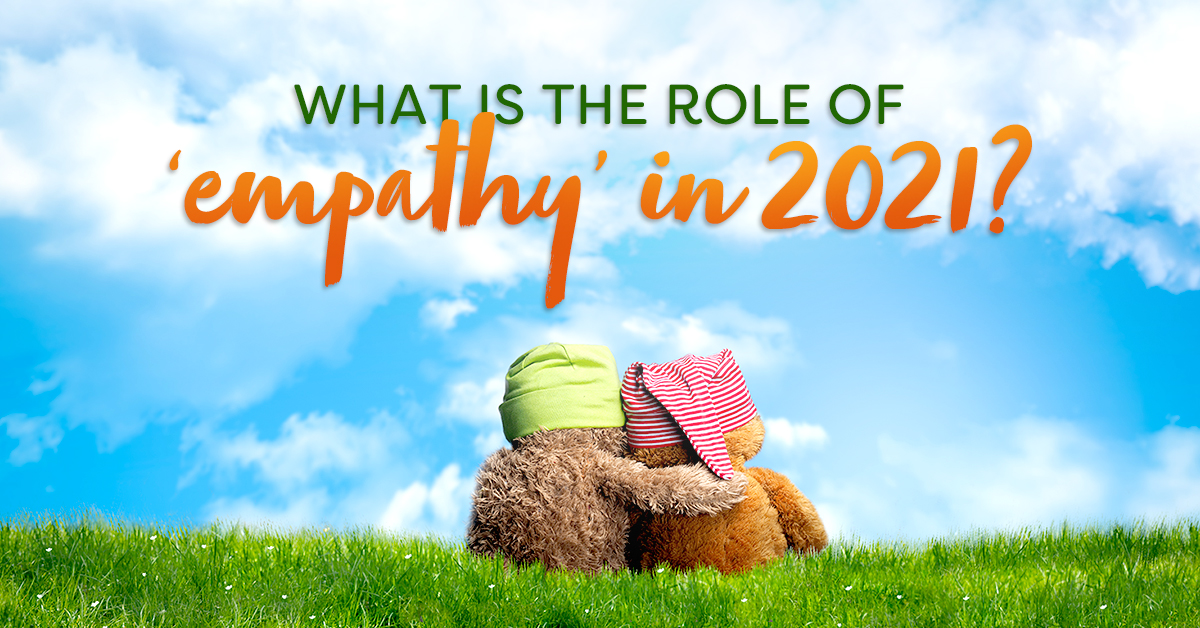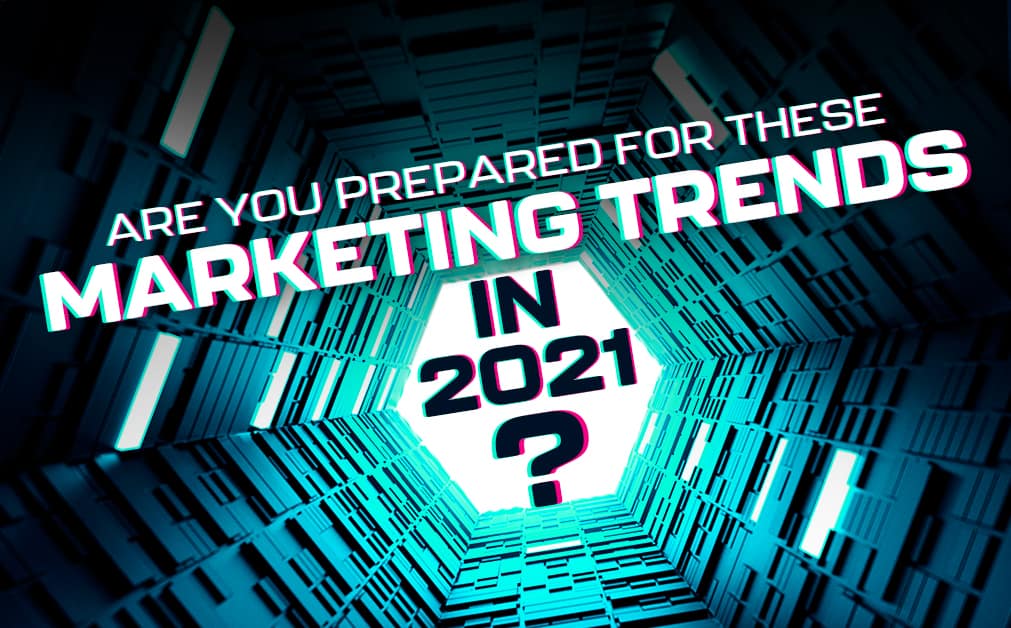This year has seen a major disruption and restructure in the way we market our businesses. The roles of a content marketing strategy, email and social media marketing will become critically important as we move into 2021.
Why? 2020 has seen all Australian businesses significantly impacted through no fault of their own. This has resulted in a loss of trust and confidence in the market and impacted the way we perceive brands, make purchases and engage with businesses. There has also been a notable shift to dedication to our personal values and goals. This is highlighted by consumers expecting brands to have a stronger focus and commitment to social and global issues.
So, how do we address this with our marketing efforts moving into 2021? And what does this mean for our content marketing strategies and plans moving forward?
Before we can answer this, it is important to understand what has changed and why, then we are more able to adopt marketing communication strategies that directly address these changes.
According to the latest McKinsey Insights Report, “Getting Acquainted with a More Mindful Australian Consumer”, COVID-19 is reshaping the emotional needs to Australian consumers and, subsequently, their purchasing behaviour.
More than 50 percent of Australian consumers have discovered new shopping behaviours, more than 30 percent have tried new brands, and more than 20 percent have tried new retailers, stores and websites since the start of 2020.
Such openness to change represents a unique opportunity to increase share for businesses that move quickly – and represents a significant risk for those that don’t.
How has the consumer mindset changed?


Confidence and trust in the marketplace have been shaken and there has been a shift to a more considered, less spontaneous consumer buying. Consumers are expressing a deeper need to exercise control in day-to-day life decisions and are increasingly making purchase decisions that align with their personal values.
Stop selling and start helping! Consumers are expecting and needing to be nurtured through the buyer journey. There are many more touchpoints than before as buyers are more selective with whom they engage. They are seeking to partner with businesses who ‘know how they feel’ and who respect and can work within their spending constraints. The content marketing strategies of a business needs to reflect this significant change.
The challenge for marketers is to present products and brands that are most relevant to their needs. Also, to create more personalised touchpoints and messages which Inform, Educate and Guide.
Nurture Me – Inform Me – Persuade Me. Help them through the buying process, rather than selling to them. We all hate being sold to at the best of times. If you try to sell rather than help, and haven’t done your thorough research beforehand, you are sure to fail.
More than ever before, there is a need for a demonstration of emotional intelligence. Many Australian consumers are cautiously embracing a more positive outlook to employment opportunities, and signs of renewal in business sectors. As they emerge from the long uncertainty of COVID-19, less anxious about the year ahead, humility, empathy and emotional intelligence are more of a “must have” skill set than a “nice to have” skill set.
People are looking to buy trusted relationships, not products and services, which are the follow-on benefits of the relationship. No more cold calling or mass email blasts, rather, personalised, targeted engagement pieces. Now might be the time to review your content marketing strategies.
So, what does this mean for businesses?
Market channels are limited. Today there are very few face-to-face meetings as online meetings are already widely accepted as the norm. According to a McKinsey Report, “B2B Businesses Prefer the New Digital Reality”, more than 75 percent of businesses now say they prefer digital self-serve over face-to-face interactions.
In fact, only 20 percent of B2B buyers hope to return to in-person sales, a sentiment that has intensified even as lockdowns are easing or ending.
Sales cycles are longer. Most businesses have suffered a downturn, meaning that budgets are tight. In a world rife with uncertainty, consumer confidence has declined, there is less trust in the market, buyer consideration and decision-making is more measured and taking longer than before.
Hence, during the current COVID-19 crisis, Australian consumers are making more deliberate decisions about where they go, what they do, and what they buy. It has also led many Australians to make new or renewed commitments to their personal values and goals.
There is a focus on short-term ROI. This means that the relationship between costs and benefit need to be immediately clear, and the sales conversion cycle will be longer as consumers carefully consider their purchase decisions.
How do we market in 2021?
Let’s take a look at the following marketing tactics:
- Email Marketing Campaigns
- Social Media Marketing
- Content Marketing Strategy
What does this mean for email marketing?
It is clear that moving forward there will be no one-size-fits-all. While email marketing has an important role to play, there is far more of an emphasis on personalisation, more focussed market segmentation and more use of automation.
There are plenty of email marketing tools around that allow different levels of sophistication. Mailchimp is a popular entry level tool, along with Campaign Monitor that allows for more automation and segmentation, and Active Campaign that acts as a full CRM offering extensive segmentation, personalised journeys, and fully automated campaign management.
Regardless of which tool you use, it is important to have your content marketing strategy and goals mapped out from the beginning. The key is to send the right message to the right people at the right time, and drive an action that will lead someone to interact seamlessly with your business and brand.
The trick is to know what message to send, when to send it and to whom. Things like AI can assist; however, for an SME business, this can be expensive, and it is easy to purchase a tool with all the bells and whistles of AI, but without the right strategy, AI won’t be the miracle you are looking for.
Having someone interact with your brand seamlessly is now an expected part of the buyer journey. Creating a memorable online experience is arguably more important than the physical experience.
There has been a huge increase in digital experiences throughout 2020, and this is predicted to continue into 2021 and beyond. Studies by Salesforce show that, 88 percent of customers expect companies to accelerate digital initiatives due to this year’s events.
Removing barriers to an online experience, however, is much more than just making the technology “work.” A great customer experience is also enhanced by your brand messaging and tone of voice.
Kathy Pay, CEO of Holistic Email Marketing, highlights that customer centricity is becoming more important, along with the provision of practical and useful advice, and more perceived value. In other words, help before you sell – make a connection – and get personal.
Email marketing is here to stay, but the way we deploy this will be different in 2021 and beyond. It has the capacity to meet consumer needs, and technology is aiding its evolution in the dynamic digital landscape.
Where does social media marketing sit in this mix?
Social media in 2020 has seen a massive increase in users across the globe. It has been a valuable channel for marketers to reach and convert customers with more than half the world now on social media.
I have posted before about the importance of trust in a consumer relationship, so ask yourself, Who do your customers trust the most? Increasing concerns over fake news and false information across social platforms makes forming a trusted relationship with your customers even harder.
Studies show that 75 percent of people don’t accept advertisements as truth. This means that relationship marketing through social media is one approach to adopt in 2021.
Reviews and recommendations on social media are far more trusted than advertisements. So, businesses will need to invest time into building relationships not only with their ideal customer and target audience, but also with their audience’s wider ecosystem.
Seeing an audience engage with your content online through likes, comments, and shares builds trust and helps amplify your voice and brand message. Thus, social media, as reported by Smart Insights, is an even more important communications channel for your businesses.
Another interesting factor to note is the diversification in social media approaches that platforms have adopted. TikTok created a new approach to social engagement with short form videos from user-generated content. Instagram rolled out Reels and LinkedIn has been testing Stories.
Live streaming of social media feeds has increased as businesses search for more ways to connect with consumers and meet online. Virtual events have proven to be popular, allowing those living with social distancing restrictions to join and engage in live events and virtual demos.
The fact of the matter is, people are spending more time than ever on social platforms and this means that businesses need to consider their presence and activity in these channels. The proliferation of and constant updates to social channels provide you with access to an audience(s) that you may not have otherwise been able to access.
Social commerce is another consideration that will become important in 2021. Shopping online is nothing new, but the way we shop, and through what channels, has seen rapid change. Pinterest catalogues, Facebook, and Instagram shops have developed and now sit alongside other e-commerce shopping sites, providing consumers with a seamless sales process.
Tapping into social commerce allows businesses to engage in channels where people are spending more time, and by removing barriers, offers faster ways to convert them into customers.
Learning how to effectively leverage social media to your advantage will be crucial for your marketing efforts and business success in 2021.
What role does a content marketing strategy play in all this?
Content marketing strategy has been one of the popular buzzwords of the past few years. It is now fair to say that it is a well-established content marketing strategy that isn’t going anywhere soon. If anything, the role of content is more important than ever before, and this trend is not set to change anytime soon.
So, how will this impact our marketing efforts in 2021?
There is a growing trend to create content marketing for social good. As mentioned before, consumers are more selective about interacting with brands that demonstrate a social conscious and commitment to the “greater good.” This means that creating a content marketing strategy that addresses social issues and inequalities that concern your customers is increasing.
According to Merkle, 56 percent of consumers say they have no respect for businesses that remain silent on important issues. In 2021, consumers will be looking for more meaningful content that can be shared to educate others. Consumers are expecting a more “human” approach to marketing as they strive to inform, educate, and engage with audiences.


Purpose-driven marketing is set to increase as consumers want more than just buying from a brand. As mentioned before, they are seeking connection through common purpose and values. Topics such as sustainability, climate change, and Black Lives Matter are all issues that brands are expected to take a stand on.
Salespeople and processes are going to become more content driven as they adopt a more strategic approach to building relationships across digital and social platforms. We will see more curated, content laden social posts rather than the “drunken party on Saturday night” as people’s reputation online will be judged more stringently than before.
A content marketing strategy allows brands to “break the rules” and take chances with doing things differently. We are already seeing this in different approaches to marketing with some of the bigger brands.
Take for example Barilla pasta. In their latest television commercial released in September, we see its clever association with many humble “tables at home.” Intertwined with cleverly created, diverse uses of the humble dining table as a work or study desk, exercise unit and games platform, it is bringing families together during the ongoing pandemic lockdowns.
The advertising content identifies with families and individuals working from home and the associated empathy, but also reflects a very clear message about trust and values. A very clever and well thought though campaign, thinking outside of the box to deliver a simple message – “It doesn’t matter how people use their tables, when a delicious plate of Barilla pasta arrives, the atmosphere changes and people start feeling at home again.”
Some other trends to be aware of as we move beyond 2020
- Giving content an experience. For example, using animated infographics, audiobooks, podcasts, personalised posts, and augmented reality is something to keep a look out for.
- Prioritise visual marketing such as storytelling through video and dynamic imagery, as adopted by the covers of National Geographic magazine.
- Use of messaging apps and chat bots allow for easy distribution of content.
- Utilise user generated content. This is a good way to show authenticity and credibility as you genuinely share the content of others to your audience.
- Mix up your marketing channels and cross-post content. For example, take screenshots on one platform and share across another; a good content marketing strategy for using humour as a tool for engagement.
Whatever lies ahead in 2021, remember that adapting your marketing efforts by recognising the changes in the consumer mindset will be pivotal to your success. Having a strong presence in the digital space will become an even more important way for you to connect and build relationships. Integrating a great content marketing strategy through your social channels and creating a seamless personalised buyer journey will only add to your success.
And importantly, remember, you don’t have to do it alone. There are plenty of content specialists who can help, and if you would like further information, please enter your email to get instant access to our free eBook or contact us to schedule a consult.
Assessment
Content Box Marketing Check Up
Answer a few questions about your marketing to see how you're doing. You'll get instant access to a detailed Check Up Report along with suggestions for improvement and marketing tips via email.
